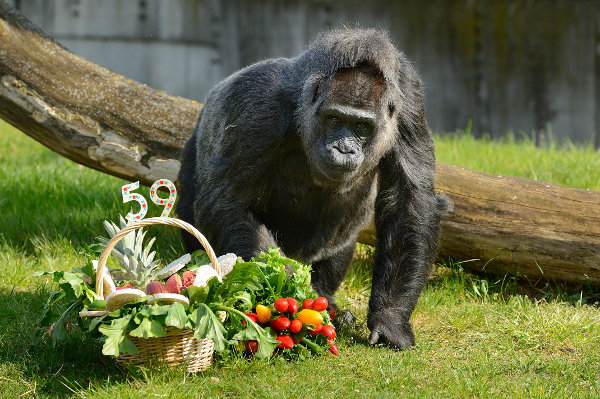Zurich / Halle / Berlin, 07/11/2016. Animal living freely in the wild are threatened by factors such as food scarcity, predators, adverse weather conditions and strong animal rivalry. However, animals living in zoos are protected against such hazards. An international research team, together with the University of Zurich (UZH) and the Halle Zoo, carried out a study on more than 50 species of mammals to determine whether these animals live longer in zoos or in the wild.
This apparently minor issue about the life of animals is not easy to answer. Particularly in the case of animals living in the wild, since it is extremely difficult to figure out the exact date of their birth and death. On the contrary, zoos usually have a complete report with their animal’s data available. But there are currently enough studies on animals living in the wild to compare their life with animals living in zoos with their precise age data.
Carnivorous animals also live longer
The Universities of Zurich and Lyon, led by the research team of Zoo Halle, conducted a study which analyzed the demographic parameters of more than 50 different species of mammals. Researchers found that about 80 percent of the species living in the zoo live longer than they do in wildlife – among them is the Cape buffalo, the reindeer, the zebra, the lion or the beaver. “On the basis of the data obtained, 15 species of carnivores lived longer in the zoo,” said Marcus Clauss, Prof. of Comparative Digestive Physiology of animals living in the wild of the UZH (University of Zurich). “It is clear that survival as a predator in the wild is not necessarily easy.”
The zoos welcome the findings of the study
The Association of Zoos (VdZ) representing 70 zoos scientifically directed in the German-speaking area welcomed the study findings. “Animal keeping at the zoo should always be evaluated and developed according to scientific criteria. The findings of the study fully invalidate those arguments put forward by zoo critics about the high mortality rate of animals living in zoos, and they also demonstrate that zoos provide favorable living conditions adapted to each of the animal’s characteristics,” says Volker Homes, director of the Association of Zoos (VdZ).
Complex assessment of zoosResearchers highlight that life span of the animals is only one factor among many to ethically evaluate animal care. “Probably the most important finding from our study is that living in the wild means not always paradise living conditions,” says Prof. Clauss. The study also arrives at the conclusion that certain species, especially those that live longer in the wild, have a slightly longer life expectancy. We talk about chimpanzees, for example. “Particularly in the case of primates, much has been invested in the last two decades in the expansion and improvement of facilities and in new husbandry systems,” says Dr. Dennis Müller, co-author of the study and director of the Zoo Halle. Moreover, he explains that: “The success of these efforts will only be statistically demonstrated by the longevity of these species within 20 – 30 years.” Volker Homes adds that “given the massive extinction of species living in the wild as the consequence of the destruction of natural habitats, zoos are clearly very important for biodiversity conservation.”
The study is available on the following link: http://www.nature.com/articles/srep36361














